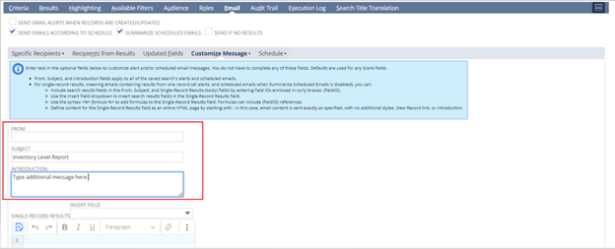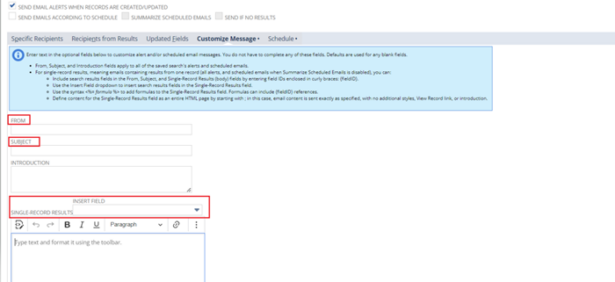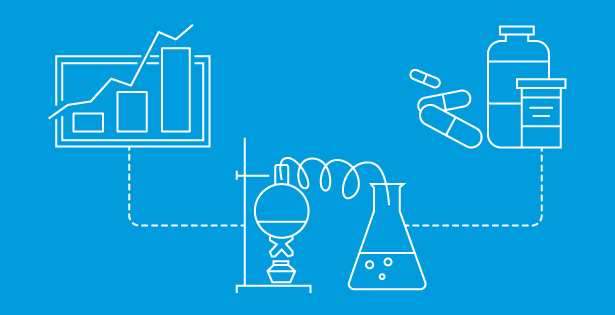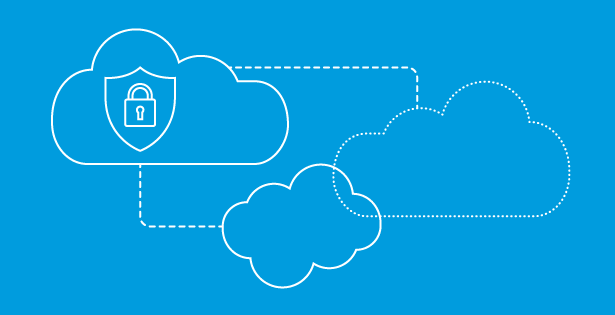A key component to increasing a user’s productivity and efficiency is leveraging NetSuite’s Saved Search functionality. While many users are familiar with Saved Searches as a means to quickly locate important information, it’s worth noting that saved searches can also automate email notifications. This feature allows NetSuite users to receive updates on new records or transactions. In this blog, we’ll delve into the emailing feature of saved searches.
To begin, you must configure the Saved Search to run its automated email function on a scheduled basis, or as new records are created that fall into your Saved Searches criteria. Each option offers advantages and are typically utilized to address varying requirements.
How To Schedule Email on a Saved Search:
- Go to Lists > Searches > Saved Searches. Select the desired saved search you want to schedule email on and click Edit.
- On the saved search page, click on Email subtab.
- On the email subtab, click the Send Emails According to Schedule checkbox.
- Note: After checking the box, the system will automatically enable both the ‘Summarize Scheduled Emails’ and ‘Send If No Results’ options by default.
- Summarize Scheduled Emails: Uncheck this box to send individual scheduled emails to each recipient for every matching record. By default, recipients receive a single email containing a summary of their matching records.
- Send If No Results: Uncheck this box to stop sending scheduled emails when the search yields no results. By default, scheduled saved search emails are sent out regardless of whether the search returns any results.
- Note: After checking the box, the system will automatically enable both the ‘Summarize Scheduled Emails’ and ‘Send If No Results’ options by default.
- Navigate to the Specific Recipients sublist, select a user or group in the Recipient field, and click the Arrow button > List to expand your selection. Then, click Add.

- Navigate to the Customize Message tab and enter the following information:
- From email address: If the field is left blank, the system will use the saved search owner’s email.
- Subject line
- Introduction (If applicable)
- Enter a custom message on the Single-Record Results field.

- Click on “Schedule” to set up when the saved search will be sent out:
- Select the sending frequency.
- Set the series start date.
- Choose the start time.
- Specify the ‘End by’ date. (If there is no end date, the system will default to the “No End Date” checkbox).
- Click Save to complete the record.
How To Setup NetSuite Saved Search Triggered Emails:
- Go to Lists > Searches > Saved Searches. Select the desired saved search you want to schedule email on and click Edit.
- On the saved search page, click on Email subtab.
- Select the checkbox ‘Send Email Alerts When Records are Created/Updated.’
- Navigate to the Specific Recipients subtab, select a user or group in the Recipient field, and click the Arrow button > List to expand your selection. Then, click Add.
- On the same line, Click the ‘Send on Update’ checkbox to send an email when there has been an update on the record/transactions.

- On the same line, Click the ‘Send on Update’ checkbox to send an email when there has been an update on the record/transactions.
- Optional: To limit update alerts to specific field updates, click the Updated Fields subtab. Then click on the drop down to select the field. You have the option to select either an old or new value that you find particularly important. If needed, you can do this for multiple fields.
- For example, if you wish to receive updates when someone edits the ‘Company Name’ on the vendor record, then select the ‘Company Name’ field. Any updates to the Company Name field will trigger email alerts to the specified user.
- Navigate to the Customize Message tab and enter the following information:
- From email address: If the field is left blank, the system will use the saved search owner’s email.
- Subject line
- Introduction (If applicable).
- Enter a custom message on the Single-Record Results field.

- Click Save & Run to receive email alerts.

 RSMUS.com
RSMUS.com






